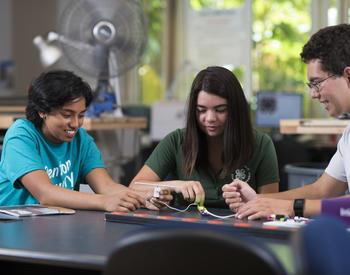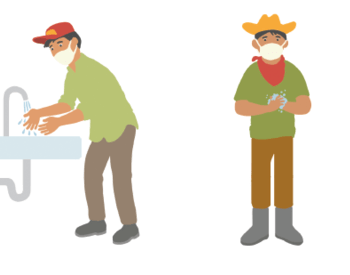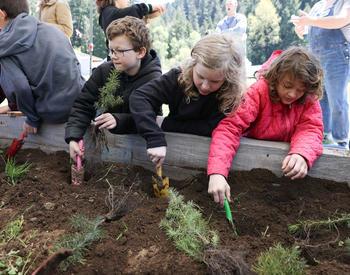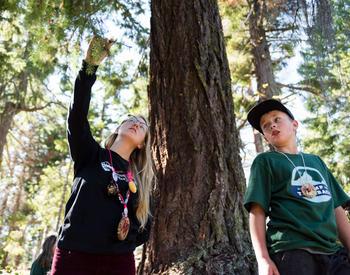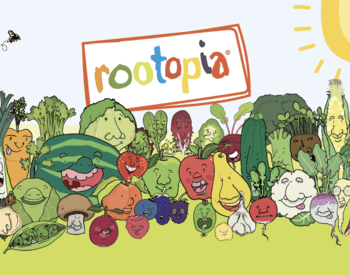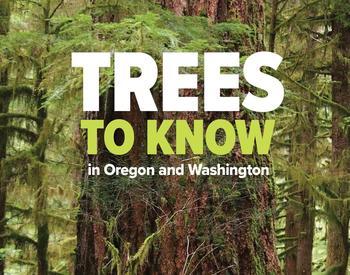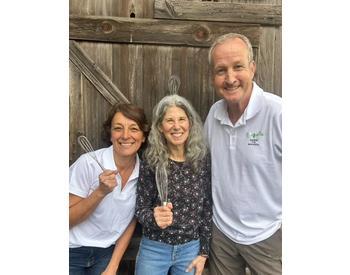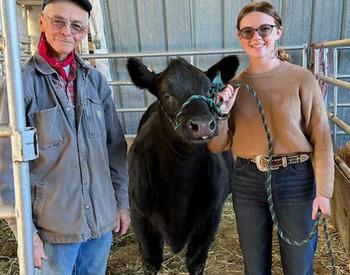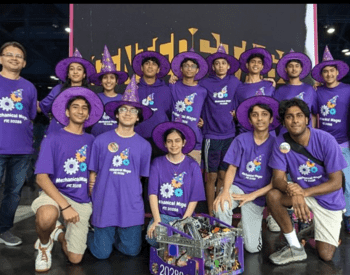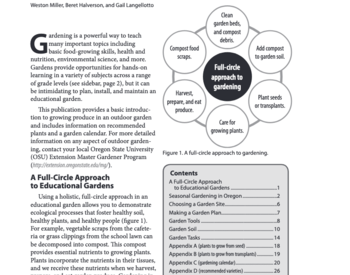Connect with a transfer advisor at the four-year institution
Once you know what college or university you plan to transfer to, it is very helpful to connect with a transfer advisor from that institution to make sure you have access to a supportive contact who can answer questions regarding the transfer process, deadlines and other details. And to make sure you can take advantage of any opportunities that may exist for you such as scholarships, student services, or support programs.
Apply for financial aid and scholarships
FAFSA
Although FAFSA is not a scholarship application, it is often required by colleges and other institutions or organizations that offer scholarships in order to be considered. Not only may FAFSA help you obtain need-based federal and local grants, but it may also facilitate your scholarship opportunities. FAFSA opens October 1 and some of the funding is limited, so apply early.
OSAC
If you are an Oregon resident, you should definitely take the time to apply for scholarships via the OSAC application portal because it hosts over $17 million in scholarships and over 600 different types of scholarships
Institutional scholarships
Colleges and universities often offer their own scholarships of various types and from within their various departments. It’s important to make sure to put in a great amount of effort in the admissions application and seek out other scholarship opportunities that may not be tied to the admission application. OSU, for example, has Scholar Dollars as a dedicated place for students to apply for other institutional scholarships that may not be included in the admissions process.
Private scholarships
Some scholarships can be tricky to find, such as those from private businesses or nonprofit organizations. It can be very beneficial to dig for these types of scholarships and ask around because many of them tend to be local scholarships and might not have many applicants, which means less competition! The Benton Community Foundation has a variety of scholarships for OSU students and you can always ask your advisors for other places to look for scholarships.
Individual development account (savings program)
An IDA is a great government-sponsored savings program for students who qualify to save some of their own money in this special type of account where every dollar can be matched with up to $3 to be used toward education, buying your first home or even a vehicle. For more information contact CASA of Oregon or DevNW.
Plan ahead for housing/travel
There are many options for housing: you may live on or off campus or you may decide to live at home and commute. Whatever you choose, below are some things to consider with each option:
On-campus housing
- Choosing where to live on campus can be a bit frightening. It may help to visit the college or university’s Housing and Dining Services webpage to explore and learn about your options. Keep in mind your personal preferences such as whether or not you would be comfortable sharing a space with a roommate or two, the type of restrooms you would have access to, and whether you’d have a communal living space or a smaller shared living room. Also keep an eye on differences in price between residence halls and room types. And remember to compare dining plan options for that may best fit your needs. Don’t hesitate to contact the Housing and Dining office if you have questions or concerns.
Off-campus housing
- Living off campus tends to happen after the first year in college but can provide a variety of benefits such as more space and a lower cost. It’s important to find roommates who you trust and that you will be able to count on to make their fair share of the rent and utilities payments along with taking care of other shared responsibilities. Living off campus could include apartments, studios, townhouses, among other options.
Greek life
- Some colleges offer the opportunity to live off-campus in fraternity or sorority houses with other students. These options tend to be more affordable than on-campus housing options.
Commuting
- It’s important to evaluate and create a plan and budget for commuting expenses if you plan to commute. Take into account the amount of time, gas money, price of parking passes, and vehicle maintenance that will be associated with commuting, and make sure that will be appropriate for your schedule and budget. Especially the commuting time!
Connect on campus
Take time for yourself to explore a variety of campus programs and resources, including clubs and community groups. This can be overwhelming, especially at the larger colleges, but can be a great way to meet people who share your interests in a smaller setting.
Student enrichment programs and services (EOP, CAMP, TRIO SSS, etc.)
Most colleges have programs dedicated to supporting and meeting the needs of students in various capacities. You will most likely feel more connected to campus if you explore what programs and services your college offers and learn how you can become involved.
Recreational programs/intramural sports
Nearly all colleges offer some sort of on-campus recreational opportunities such as intramural sports (competitive and noncompetitive), cultural events, celebrations, tournaments, game nights, etc. As a student, this means you have access to a variety of options to relax, spend time with friends, meet new people and just enjoy yourself doing something that interests you!
Cultural/academic clubs & organizations
Students are welcome to start their own clubs and organizations at their respective colleges. Clubs can be about anything students decide if there is interest from a handful of students and the college is notified in order to receive support from the college to help legitimize the club or organization. Students are also highly encouraged to participate in clubs and organizations because it has been demonstrated to improve student retention, sense of belonging, and access to support from peers, staff and faculty.
Paid opportunities
Work-study
If you marked that you were interested in work-study on your FAFSA, there is a chance that you may be eligible for on-campus work-study jobs at your college. You can confirm whether you are by reviewing your financial aid offer from your college or university and looking for an item line called "work-study" or "federal work-study." If you have confirmed you are eligible for work-study, you can apply for those jobs at your college on their respective job portal for students.
Research
Undergraduate research is a great way to learn and build skills that will help you after you graduate. Whether you have a goal of going into research after you graduate or not, research experience will help set you apart in job applications and provide you with important analytical skills that will help you in whatever future job you choose. At OSU, the URSA program provides a great way for transfer students to connect with faculty who are looking for students to work on research projects.
Campus jobs
Work-study is not the only way a student can gain access to on-campus student jobs. Most colleges offer a variety of jobs open to student workers with or without work-study. Explore your college’s student job portal for opportunities. Hot tip: try to find something that will gain you experience somewhat or directly related to your career goals!
